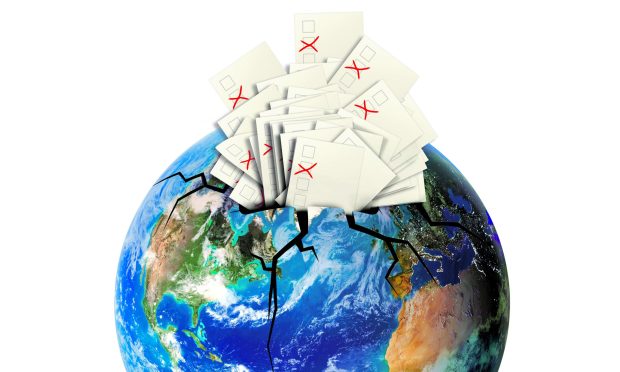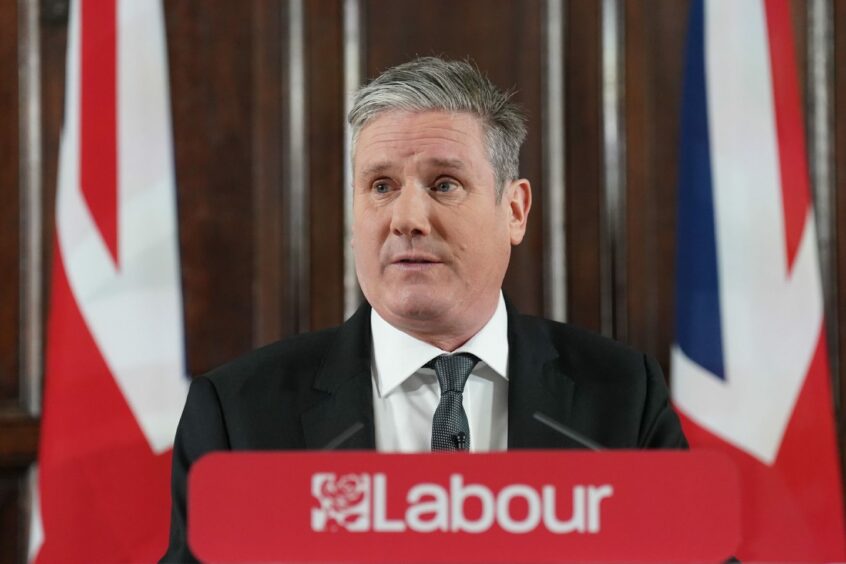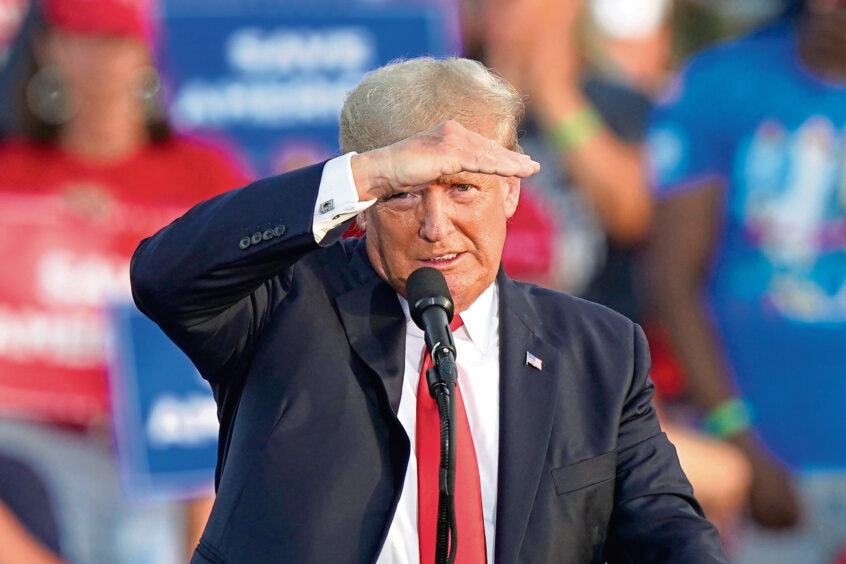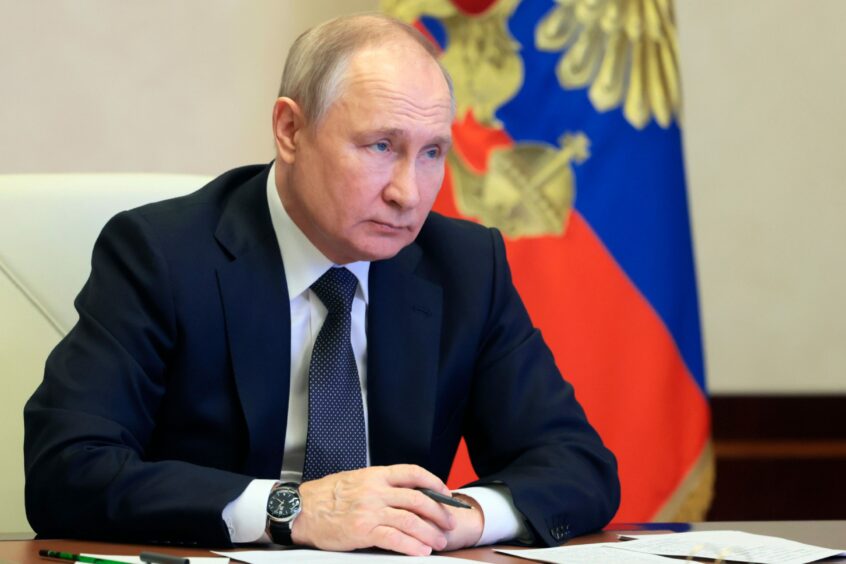
In the shadow of the Himalayas, the Land of the Thundering Dragon will go to the polls on Tuesday.
Bhutan, tucked between India and China with a population of 750,000, will vote in a run-off between former prime minister Tshering Tobgay’s People’s Democratic Party and the recently-registered Bhutan Tendrel Party after a campaign dominated by the economy.
The spectacular storms rolling down from the towering mountain range in the north inspired the thunderous dragons of Bhutanese mythology but the country’s vote will signal an even more tempestuous year when, in an unprecedented 12 months of democratic choice, two billion people will be eligible to vote in elections across more than 60 countries.
It is not even the first election of 2024 – Bangladeshis vote in parliamentary elections today despite a boycott by the main opposition party appalled by a crackdown on the government’s opponents – but Bhutan, where a new government may be formed by a party less than two years old, and, more significantly, Taiwan, where a potentially crucial election is held on Saturday, may presage political tumult ahead.
Billions go to the polls
The torrent of elections will flow through countries, representing almost half of the world’s population, from Azerbaijan and Botswana to Togo and Venezuela with around 64 national elections scheduled along with votes to the European Parliament and United Nations’ Security Council.
Some will be small, Tuvalu – the Pacific reefs and atolls threatened by climate change where 10,000 islanders live – goes to the polls later this month.
Others are larger with India, the world’s most populous country with a population of 1.43 billion, voting in the summer when prime minister Narendra Modi, a populist “political strongman”, is widely expected to secure a third term.
All the votes will hold significance but some will have potential to heal or harm international relations, slow or speed the world economy and shape lives around the globe.
With armed and ongoing conflict in Ukraine and the Middle East, high-stake elections in countries from the US and India to Iran and Taiwan could easily risk the eggshell fragility of international accord and tilt the mercury switches of geopolitical alliance and enmity.
Meanwhile, some observers fear this unprecedented test of democracy might be failed because of the escalating but covert online interference of foreign governments stoking increasingly polarised debates and encouraging the rise of extremists.
UK General Election
The looming general election will, of course, dominate political debate in the UK with the announcement of an early budget in March provoking fresh speculation that prime minister Rishi Sunak may go to the polls two months later despite his own publicly-stated preference for an Autumn election.
Tory ministers initially circling May in their diaries was, according to Labour shadow minister Emily Thornberry, Westminster’s “worst-kept secret” and, with her party between 15 and 20 points ahead in the polls, the vote, whenever it comes, is expected to expel the Tories from power after 13 years which have included their share of missteps, scandal and a dizzying procession of prime ministers.
If, as the polls predict, Sir Keir Starmer is prime minister by November 5, he will, like the rest of the world, be looking across the Atlantic, where the race to become the 47th US president is already fuelling fevered dreams of Donald Trump resurgent.
Incredibly, president Joe Biden’s predecessor, a politician who incited a violent but failed coup, when his supporters stormed the Capitol intent on overturning the result of a democratic election, is almost certain to be the Republican’s chosen candidate. Just as incredibly, his lead over Biden in the fistful of battleground states where the White House will be won or lost, is being confirmed in opinion polls even as his disgrace is laid bare in a litany of indictments, court appearances and official reports.
The influential Economist magazine recently called the prospect of a second term for Trump “the biggest danger” globally and warns “a shadow looms over the world. That a Trump victory next November is a coin-toss probability is beginning to sink in.”
Dismayed and disbelieving, his Democrat opponents have resorted to magical thinking, crossing their fingers and hoping, in the face of mounting evidence, that Republicans will suddenly understand the danger and swing behind their 81-year-old candidate, the oldest US president, despite widespread concerns about his age and performance.
A Trump return?
Two states, so far, have ruled Trump cannot stand after inciting the 14th Amendment-busting insurrection with their decision likely to end up in court as judges prepare to play an influential role in another US election.
Lyce Douset, the BBC’s chief international correspondent, said Trump’s return to power would not cause universal alarm around the globe when countries like Russia, China, South Africa and Brazil are resolutely relaxed about the prospect, but added: “In other parts of the world they do look with trepidation at what happens after a Trump victory. Firstly, because they are not sure what he will do this time.”
She said many expect a victorious Trump to surround himself with “true-believers” in the White House before seeking revenge on the US institutions he blames for his political and legal troubles, adding: “This could have huge implications for democracy in America and if democracy in America is under attack that has huge ramifications for democracy worldwide.”
The raucous refusal of Trump to admit a single crime or misdemeanour and his relentless willingness to pile lie upon lie is not new but, this year, of all years, exposes a worrying and widening fault-line in democracies around the world.
Social media impact
The increasing use of social media and an apparently concomitant disillusion with mainstream news has prompted fears that 12 unprecedented months of political campaigning, the mother of all election years, will also signal unprecedented dirty tricks online.
Experts are already warning of a flood of fake accounts pumping out fake news, fake videos and fake claims while harnessing the surging power of artificial intelligence to smear candidates, sow confusion, deepen division and dupe voters.
The past interference of Russian troll factories in a string of foreign elections, including Scotland’s independence referendum in 2014, is beyond doubt but the Kremlin is not the only foreign power intent on mounting cynical operations online to influence votes abroad.
Vladimir Putin too faces what Moscow likes to call an election this year while Ukraine is likely to postpone its presidential poll as the war continues.
That conflict is just one reason why a Trump victory in November will be celebrated in the Kremlin where there is a rising belief that cracks in the international coalition backing Ukraine will, eventually, allow Vladimir Putin to claim some kind of victory after his morally-derelict, militarily-humiliating invasion.
Meanwhile, Iran and, particularly, China are said to be increasingly active in their efforts to influence foreign elections by stoking division and distrust while undermining confidence in political institutions and the fairness of elections themselves.
In recent months, Meta, Facebook’s parent company, has taken down 5,000 new but fake accounts, operated from China, reposting political messages from US politicians on issues ranging from abortion and the military to healthcare and Ukraine .
Ben Nimmo, global threat intelligence lead at Meta, suspects the accounts were intended to collect followers in the US before the race to the White House properly begins.
He said: “It might just be a preparatory stage. It might also be that they are trying to push on really emotive issues to drive the two sides further apart.
“It shows that foreign threat actors are trying to hijack authentic partisan narratives in the countries they’re targeting.”
Certainly, research suggests the online tactics and messaging increasingly crosses borders with the same themes of antisemitic conspiracies and fears over immigration being stoked by state-sponsored bad actors of various nationalities.
How can social media users around the globe be protected from such concerted international action to influence their vote? Can faith in free and fair elections survive the potential return of President Trump? And will democracies across the world emerge unscathed from such an unprecedented electoral stress test?
Right now? It might be too close to call.

Enjoy the convenience of having The Sunday Post delivered as a digital ePaper straight to your smartphone, tablet or computer.
Subscribe for only £5.49 a month and enjoy all the benefits of the printed paper as a digital replica.
Subscribe © Stefan Rousseau/PA Wire
© Stefan Rousseau/PA Wire © AP
© AP © Mikhail Metzel/AP/Shutterstock
© Mikhail Metzel/AP/Shutterstock